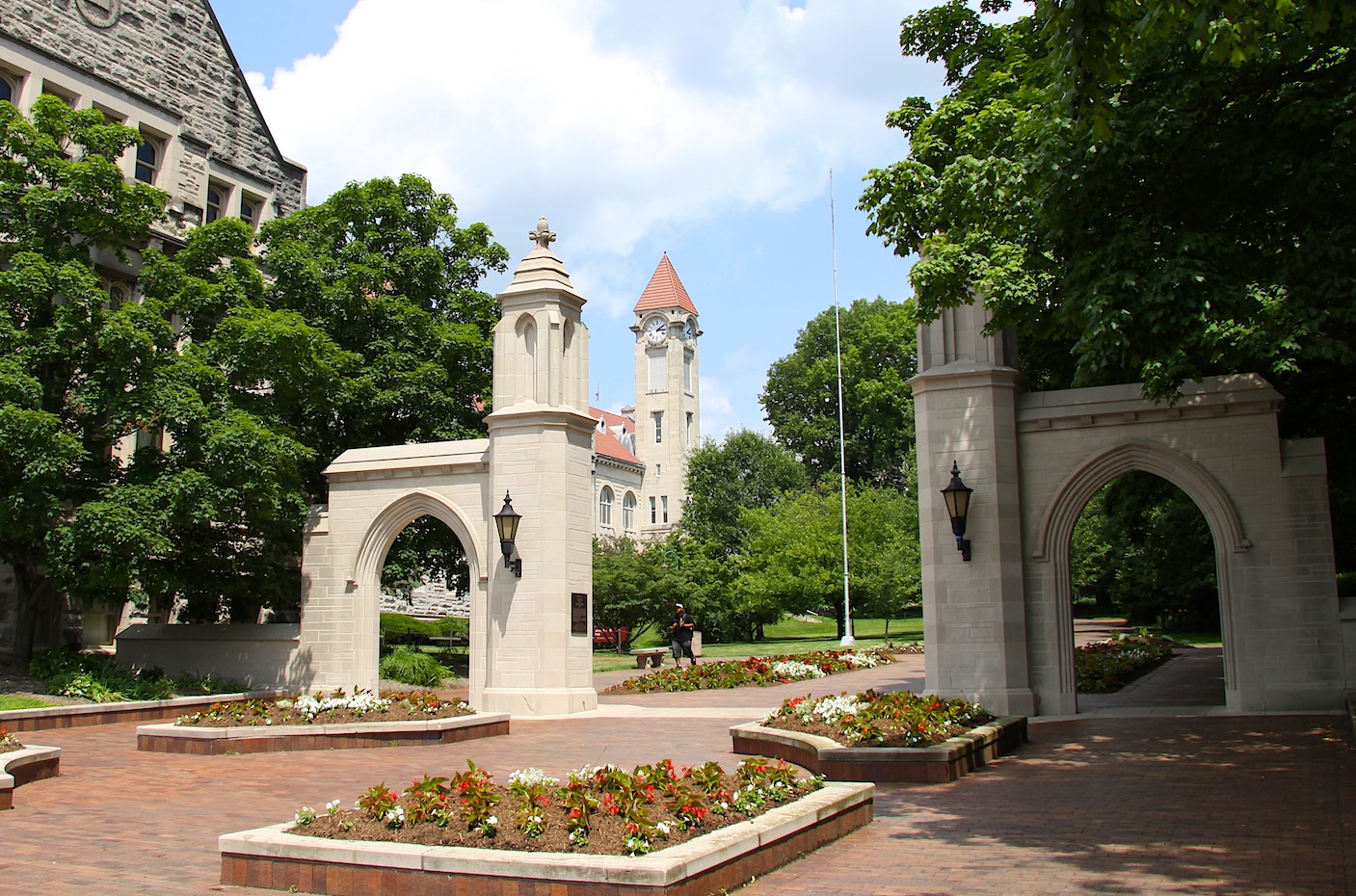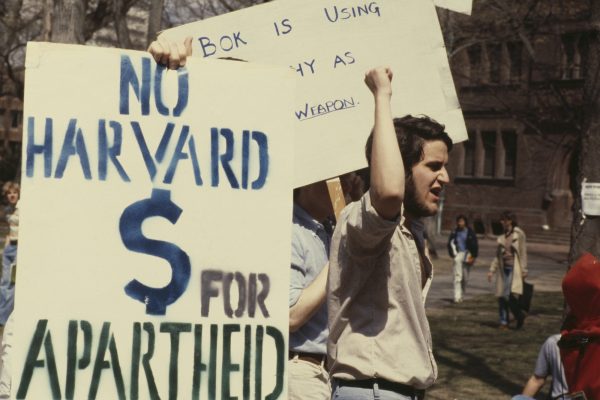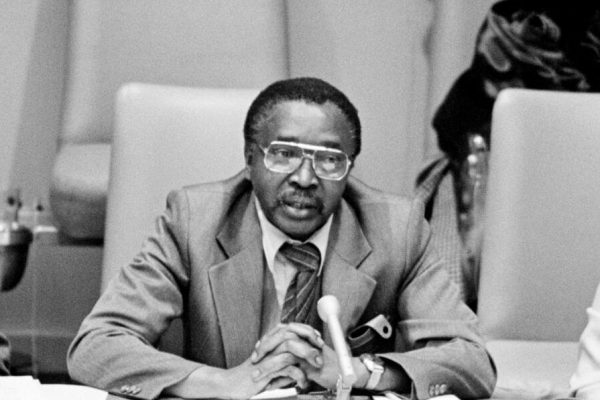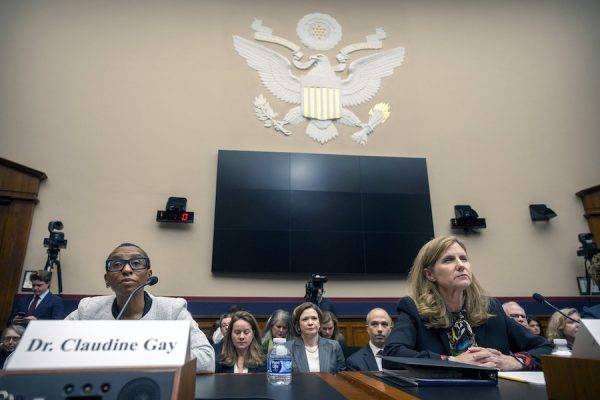On May 26 the U.S. death toll from COVID-19 exceeded 100,000, including 2,000 deaths in the state of Indiana alone. That same day Michael McRobbie, the president of Indiana University (IU), glibly declared that he was “very pleased” to announce that in the fall the university plans “to welcome students back to all our campuses, where instruction will be a blend of in-person and online.”
Most people in Indiana, like people everywhere, are reasonably afraid—about the present as well as the future. We are living amidst the severest public health crisis of a generation and are staring down the greatest economic crisis of perhaps a century. The fact that McRobbie began his announcement by telling us that he is “pleased” says a lot about the spirit of seriousness with which he has chosen to make a decision of the utmost significance that will affect hundreds of thousands of people throughout the state and has the potential to bring medical disaster to campuses like the Bloomington campus on which I teach, which crowds over 48,000 students in a small city only twice that size.
What are the most important priorities for the diverse university community in the face of the pandemic? Expert knowledge can only take us so far without a consideration of the full range of human interests at stake.
As I noted last week, IU leadership faced very real pressure to reopen given the highly publicized recent decisions of the state’s two other major universities, Purdue and Notre Dame, to convene on campus in the fall. While Purdue is led by a businessman and former governor (Mitch Daniels) and Notre Dame by a Thomist philosopher (John Jenkins), IU is led by a computer scientist who, without even gesturing to educational values or civic responsibility, framed his decision around technology. Instruction this fall, he wrote overconfidently, “will make extensive use of technology while preserving as far as possible the most important elements of the in-person experience.”
McRobbie grounded his decision in the proposals contained in the Indiana University Restart Committee Recommendations Report that he had commissioned in March, which recommended a mix of instruction forms on campus “provided extensive public health measures are taken.” But, as I have pointed out, this report is itself a profoundly flawed and technocratic document, produced by a small committee chaired by the dean of the medical school and consisting only of medical and public health experts. It draws on none of the wide range of intellectual resources available at the university. The committee included no economists, sociologists, anthropologists, political scientists, legal scholars, philosophers, ethicists, or psychologists who study moral decision-making or analyze public policy. None of these issues was incorporated into the deliberations of the university’s strategic planning process.
The report also fails to represent any of the campus groups whose experiences are themselves a kind of knowledge, and who will bear most of the consequences of the university’s decisions about reopening. The university is not a democracy, but it is a human association that involves the knowledgeable cooperation of many people. These people matter as human beings who experience the world and are capable of articulating their experiences and concerns. This was put best by the philosopher John Dewey in his most important work of political philosophy, The Public and its Problems (1927): “The man who wears the shoe knows best that it pinches and where it pinches, even if the expert shoemaker is the best judge of how the trouble is to be remedied.” Expert knowledge can only take us so far without a consideration of the full range of human interests at stake. And the historical record suggests that it is both arrogant and counterproductive for some to interpret the interests of others, without those others even having a say. What are the most important priorities for the diverse university community in the face of the pandemic? Advanced degrees in medicine and public health confer no special wisdom here.
Perhaps most notably, the report cites no social scientific evidence whatsoever for the notion that its “public health measures” can be plausibly implemented and enforced on campuses. Indeed, the report envisions nothing short of a veritable moral transformation of tens of thousands of young undergraduates. It invites us to take leave of our common sense and our knowledge of the way social institutions work, and to imagine that what we call “the IU experience” will overnight be transformed into a place of sobriety, care for others, and moral responsibility. The administration’s embrace of this report perfectly exemplifies the technocratic logic that has overtaken many universities. At a time of real crisis, it is deaf, dumb, and blind to the sociology of young people, the social organization of campus life, and the need for a leadership that is centered on a vision of moral and civic responsibility.
Meanwhile, a day later, very different statement was made. The provost of the Bloomington campus, Lauren Robel, who had long served as a law professor before ascending the administrative ranks, also shared a public message. It began very differently:
Dear Colleagues:
We took our campus apart in March. Now we begin to put it back together. Can we do so in a way that honors the academic values of Indiana University: honest debate, transparent discussion, critical thought, ethical behavior, and a belief in the power of education? In a pandemic that has become dishearteningly partisan, can we develop a vocabulary to discuss what is at stake and consider the actual alternatives we have? We must.
What followed was an honest acknowledgment of the “range of reasonable disagreement” about the campus reopening, and an elaborate and serious discussion of why she supports the reopening and the decision-making process, including faculty and staff deliberation, that she envisions moving forward.
The provost’s statement hinges on a vision of faculty and student engagement, and imagines that the current crisis can cause all to rise to the occasion, access their “better angels,” and dedicate themselves to an extraordinary form of education that is also an extraordinary performance of social responsibility. It is a powerful vision. Compared to the president’s cold and perhaps even cynical statement, the provost’s engages in a noble form of moral exhortation. A key passage is worth quoting at length:
We have an opportunity not only to teach students why we are approaching the issues in the way we are, but also to help them think more carefully and fully about responsibilities we owe to each other, in this and other situations; to put this crisis in the context of other crises that people their age have been asked to face and how those generations did so; and to solicit their questions and concerns about the extraordinarily confusing period they have been experiencing. We can call on their best selves, as teachers should always do. The educational possibilities of this moment are extraordinary. They are difficult, yes, but we teach students difficult concepts every single day. And we have access to all of the disciplines that could make this effort as effective as it is possible to make it. I am not ready to give up on our students and ourselves quite so quickly without enlisting the very best faculty and staff advice and knowledge we can muster.
This is a sincere and appealing vision of the civic responsibility of the university. With proper planning, serious faculty and staff buy-in, and incentives to support such community engagement, it might even be possible to fulfill this responsibility. But we must not fail to notice it would require a thoroughgoing moral transformation. Any sober assessment must acknowledge that the idea of achieving such a transformation in the next three months is simply utopian. It flies in the face of everything we know about the way students and faculty behave: students do not regard us as moral authorities, nor do we. Indeed, it flies in the face of the long-standing ethos of the institution at large, as it is shaped not simply by educational ideals but by the enormous power of college sports, the constraints of a stingy and conservative state legislature, the less-than-ideal pressures of well-placed alumni, and the culture of Greek life and partying for which our campus, in particular, is rather notorious.
Any sober assessment must acknowledge that the idea of achieving a throughgoing moral transformation of campus life in the next three months is simply utopian.
I have taught in the political science department at IU for thirty-three years. I believe in the values that the provost articulates, and I have worked, sometimes in collaboration with her, to promote them. But these values, while precious to some of us, are secondary and even marginal to most things that actually go on at any college campus—the very things, involving social proximity and intercourse rather than distance, that actually draw many students to live and learn here. The provost’s vision is appealing, then, but ultimately it is an unconvincing rationale for reopening. It is one thing to appeal to our higher selves. It is quite another to imagine that such an appeal can generate the kinds of individual and public hygiene, social distancing, and rule-following that are needed to make it safe to teach and learn on campus. For the risk is enormous, and in the face of it, we have been presented with little more than high-minded imaginings and moral exhortations.
At the same time, those of us who teach and work at IU now have no choice but to deal with the decisions that have been made for us. To speak for myself, I welcome the educational challenges presented by the COVID-19 crisis. But, as a sixty-three-year-old veteran faculty member who survived cancer thanks to radiation treatment, I also do not intend to set foot on campus in the fall. I worry for my colleagues, my students, and my neighbors—for the grandiose social distancing measures imagined for campus have absolutely no force off campus, where most students regularly congregate and where thousands live. The provost indicates that she seeks further faculty and staff consultation. One can only hope it will be possible to work constructively to mitigate the most serious dangers, to employ a “hybrid” approach that allows both students and teachers the choice of pursuing teaching and learning either on campus or off; that encourages remote work for staff whenever feasible; and that protects the economic situation of those—staff, graduate students, and some adjunct faculty—who are most economically vulnerable.
Yet even as we hope, it is important to be vigilant about the unfolding situation, and to be firm: the leaders of Indiana University have made a decision that will have colossal consequences, and it has turned the university into a natural experiment in social responsibility. I believe this experiment is bound to fail. I hope I am wrong—and if I am wrong, I will happily admit it publicly. But these decision-makers alone must bear responsibility for this action. If things go well, they will deserve to be praised for their administrative brilliance. And if they don’t, and if the disease spreads here, and people become seriously ill or die, then they will deserve to be condemned.
This is a harsh evaluation. But the reality itself is harsh, and the danger all too real, and with the power to decide comes the burden of responsibility.








